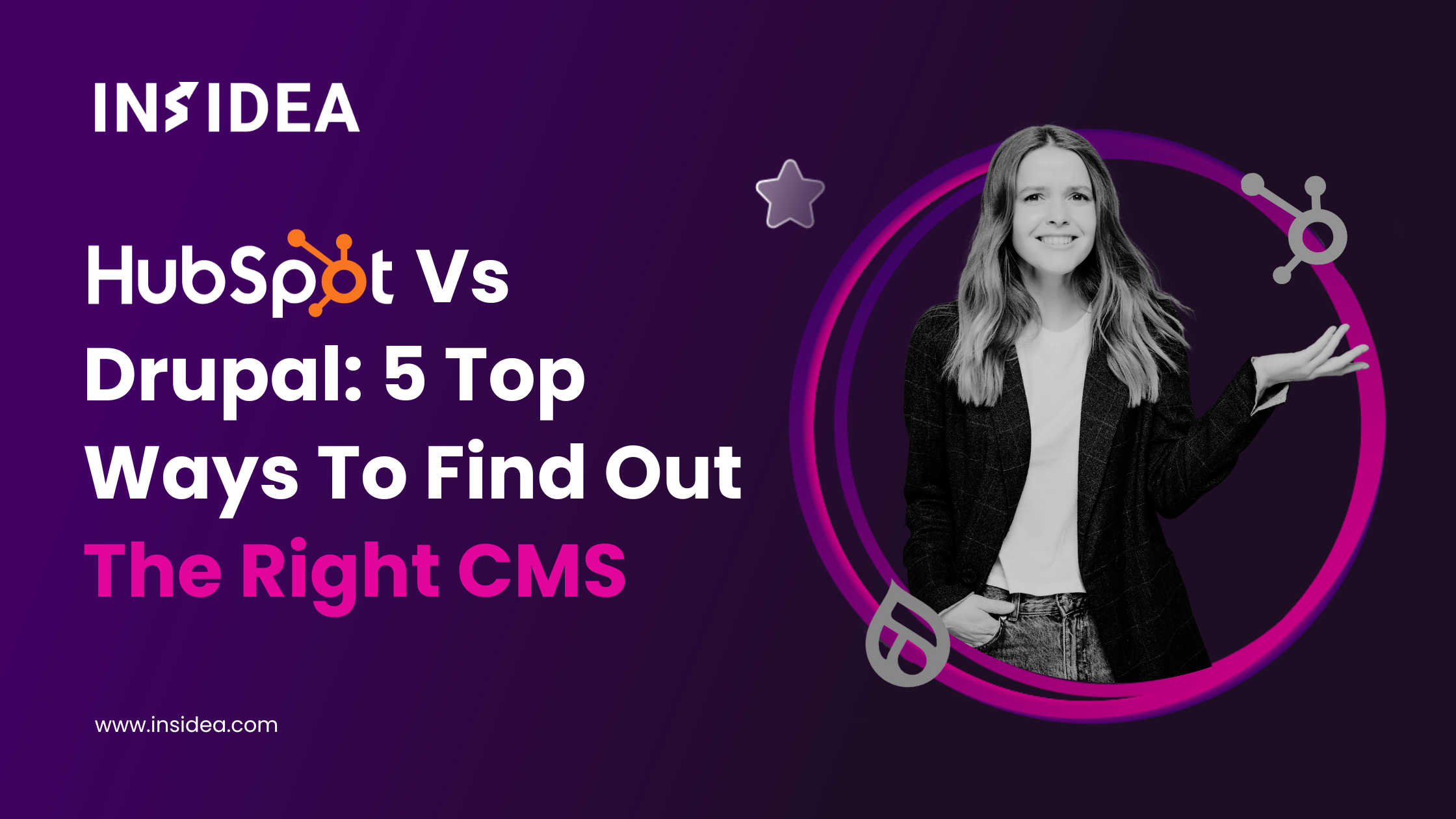Whether you’re a budding startup or a seasoned company, a well-maintained website is essential for generating lead funnels. This means you need a Content Management system (CMS) as a tool to manage everything about your website.
However, it’s more challenging than it seems. The market is overloaded with various CMS tools, and finding the right one is one hell of a challenge. It is like searching for that perfect office chair you always wanted to sit on.
Enter the debate: HubSpot vs Drupal. While HubSpot offers a holistic solution encompassing CMS to marketing automation, Drupal stands strong as a tried-and-true open-source CMS platform. Both bring their strengths to the table, but which aligns more closely with your unique requirements?
Let’s find out:
A Brief Overview of HubSpot & Drupal
Alright, before we dive deep, let’s set the stage with a quick overview of our two contenders.
HubSpot

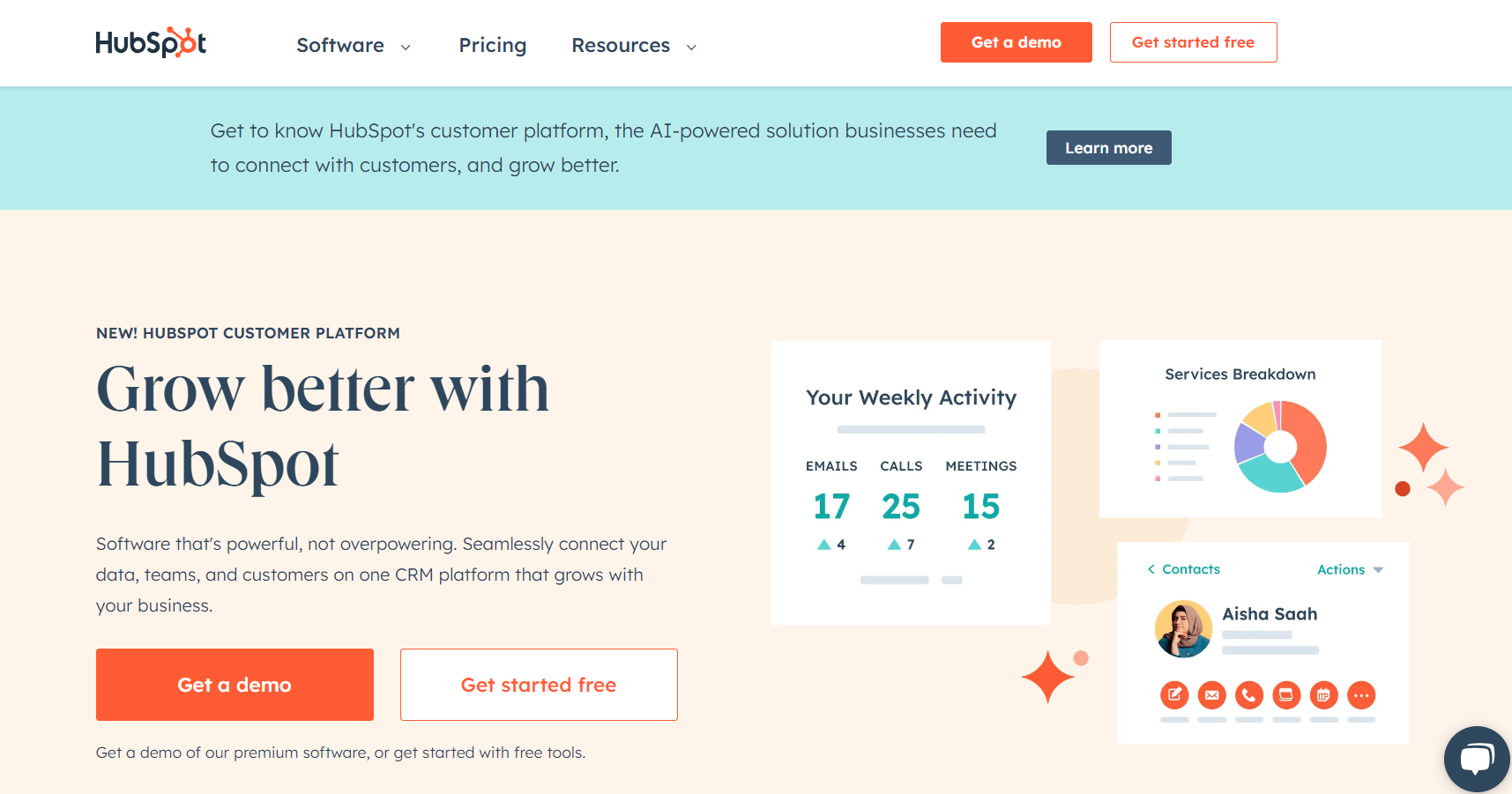
Think of HubSpot as your all-in-one business companion. It’s not just a CMS; it’s like that multi-tool gadget every business wishes it had from day one. From content management to integrated marketing tools, HubSpot has got your back.
It ensures you’re not just reaching your audience but engaging them effectively. And It is designed for businesses that want to streamline their operations and have everything in control under one roof. It possesses an umbrella of technologies with having your marketing, sales, and service tools all in one place.
Drupal
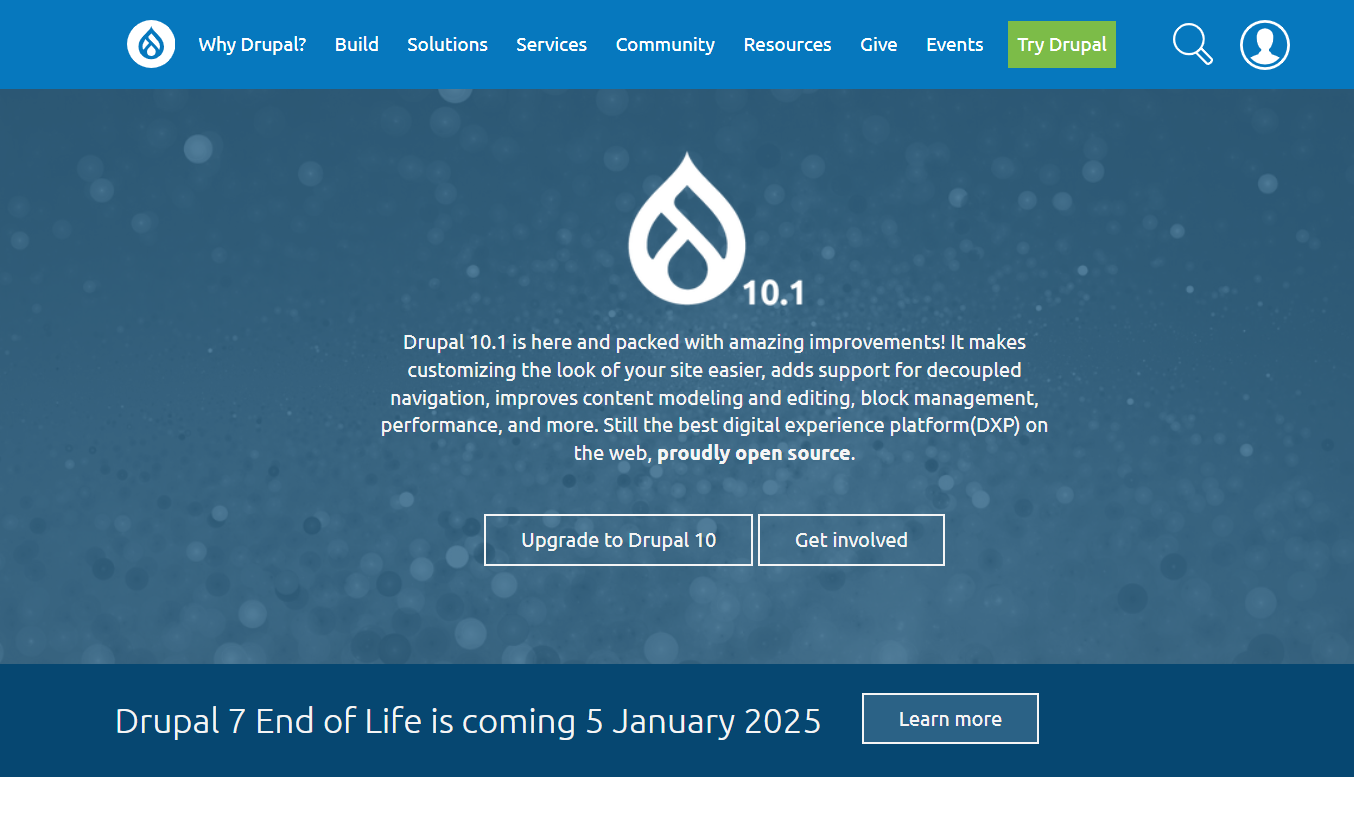
Drupal has been around for a while and has a reputation for being robust and highly customizable. Its open-source nature offers a playground for those who love to curate their digital presence down to the finest detail. It has power and flexibility, but that comes with some complexity.
So, with our platforms introduced, let’s dive into the nitty-gritty and see how they work in real-world scenarios.
HubSpot Vs Drupal: A Comprehensive Comparison
Marketing has become dynamic and tricky these days, and time is of the essence with its fast-paced nature. The quicker you can set up and manage your digital assets, the faster you can get back to what truly matters: growing your business. Let us understand how they differ in terms of the conditions listed below.
1. HubSpot vs Drupal: How Easy is it to Get Started?
HubSpot
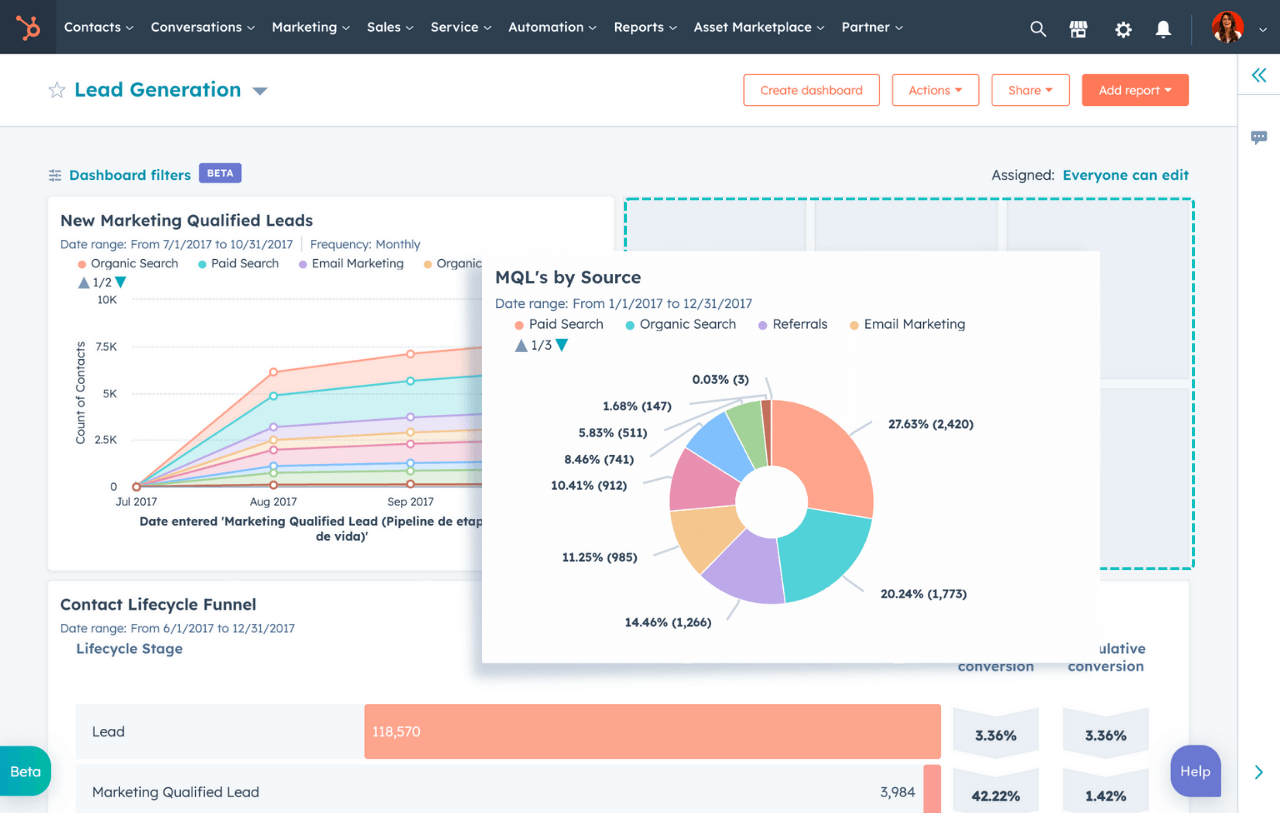
- Intuitive Interface: HubSpot is designed with the user in mind. Its dashboard is clean, organized, and intuitive. Whether you’re a seasoned digital marketer or a newbie, navigating its features feels seamless.
- Drag-and-Drop Functionality: Need to create a landing page? With HubSpot, it’s as simple as choosing elements and placing them where you want. You can start using it without expertise or exposure to complex code or configurations.
- Integrated Tutorials: HubSpot understands the learning curve and offers in-platform tutorials and guides, ensuring you’re always aware of the situation and businesses can hit the ground running with minimal friction.
Drupal
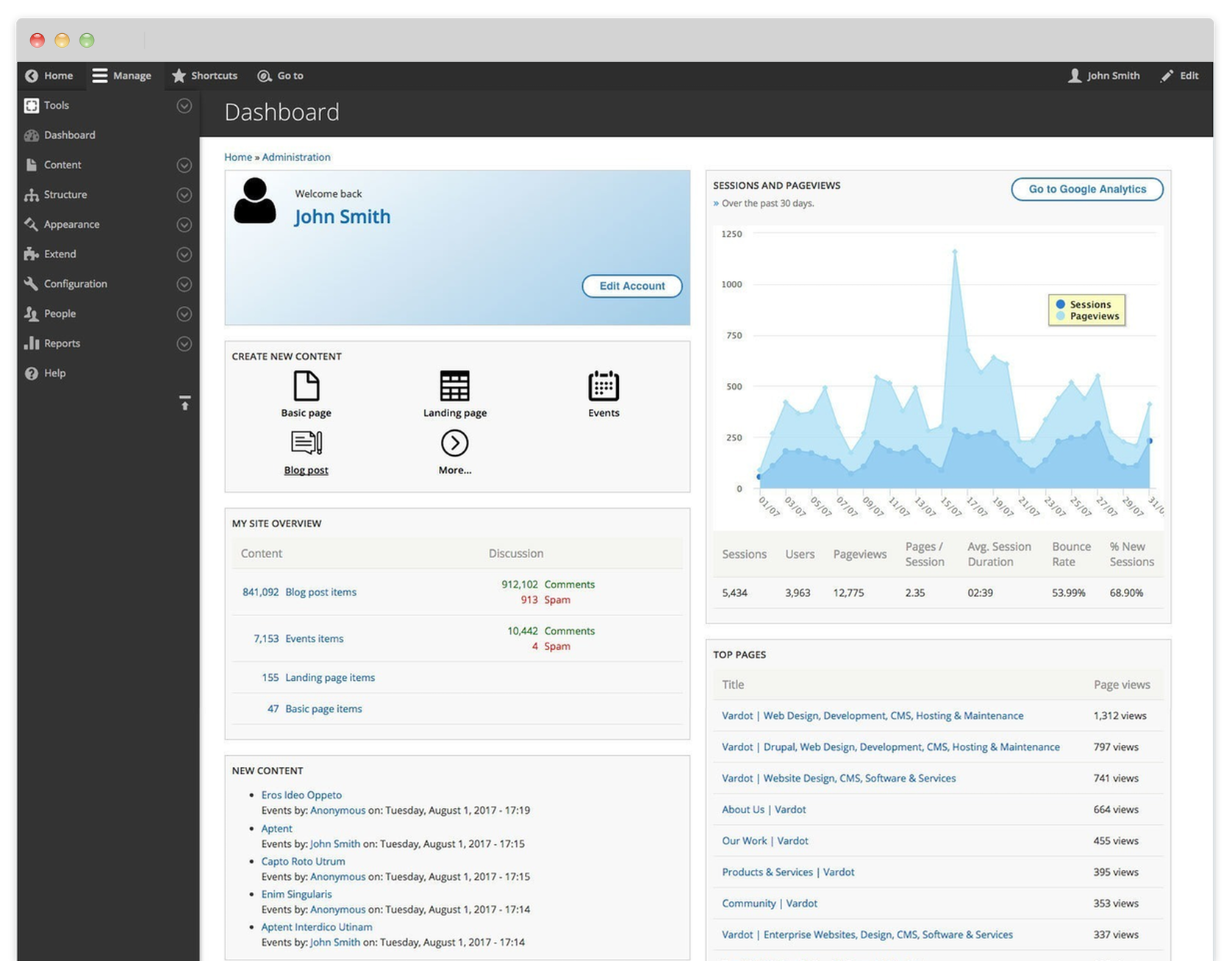
- Customization at Its Core: Drupal’s strength lies in its flexibility. However, this means there’s a steeper learning curve. You have the tools to create virtually anything, but it requires a deeper understanding of the platform.
- Module Dependency: You often need to integrate various third-party modules to achieve specific functionalities. While this offers customization, it can be difficult for newcomers.
- Less Pricey But!: It demands a higher investment of time and expertise in coding language & frameworks.
HubSpot provides an intuitive interface with drag-and-drop functionalities, making it user-friendly, especially for non-developers. On the other hand, Drupal offers immense customization but requires a higher degree of expertise, making it more suitable for tech-savvy users.
2. HubSpot Vs Drupal: Which One Possesses A Suite Of Marketing Tools?
HubSpot
- All-in-One Suite: HubSpot shines with its integrated in-house marketing suite. From SEO tools to email marketing, everything is under one roof, ensuring consistency and ease of access.
- Lead Management: Track and nurture your leads effortlessly. With HubSpot, you can segment your audience, automate follow-ups, and monitor lead progression through the sales funnel.
- Analytics and Reporting: Understand your audience’s behavior with in-depth analytics. HubSpot provides straightforward, actionable insights, allowing businesses to refine their strategies in real time.
Drupal
- Modular Approach: Drupal’s strength is in its modular nature. While it doesn’t offer built-in marketing tools like HubSpot, it provides a plethora of modules that can be integrated. This means more flexibility but also more setup time.
- Integration with Third-Party Tools: To harness the full power of marketing in Drupal, you’ll often find yourself integrating third-party tools.
- Comes With Complexity: Handling this platform requires a more hands-on approach, piecing together the right modules and tools to achieve similar results. This approach offers a wide range of functionalities. However, it can sometimes lead to compatibility issues or disjointed experiences.
HubSpot as an integrated suite of tools streamlines marketing efforts, tracking, and analytics.
Drupal requires integration with third-party tools, offering flexibility but at the cost of increased setup time.
3. HubSpot Vs Drupal: Security And Reliability Of Your Favorite CMS Platform
HubSpot
- Managed Hosting: With HubSpot, you’re on their managed hosting. This means they handle all the security patches, updates, and server maintenance. It’s like having a dedicated IT team watching over your digital assets 24/7.
- SSL Included: HubSpot includes SSL certificates for all its hosted sites, ensuring data encryption and secure user interactions immediately.
- 24/7 Monitoring: HubSpot’s infrastructure is continuously monitored. Any anomalies or potential threats are swiftly addressed, ensuring minimal disruptions to your operations.
Drupal
- Self-Managed Security: Being an open-source platform, Drupal’s security is in the hands of its community. While this community is active and vigilant, site administrators must manually apply security patches and updates. This means you need to be proactive about your site’s security.
- Customizable but Demanding: Drupal’s flexibility allows for robust security configurations, but it demands a deeper understanding of the platform and its modules. It’s like building your security system—you have all the components, but you must ensure they work harmoniously.
- Hosting Dependent: Drupal’s reliability is often tied to your choice of hosting provider. While this offers flexibility in choosing a host that fits your needs, it also means the onus of server reliability falls on your chosen provider.
HubSpot offers a significant advantage with its managed hosting, inclusive SSL, and round-the-clock monitoring, which collectively ensure a consistent security environment. In contrast, Drupal demands users to take a more proactive approach towards security. The level of protection Drupal provides often hinges on the specific hosting choices made by the user and the timely application of manual updates.
4. HubSpot Vs Drupal: Community And Support You Are Looking For
HubSpot
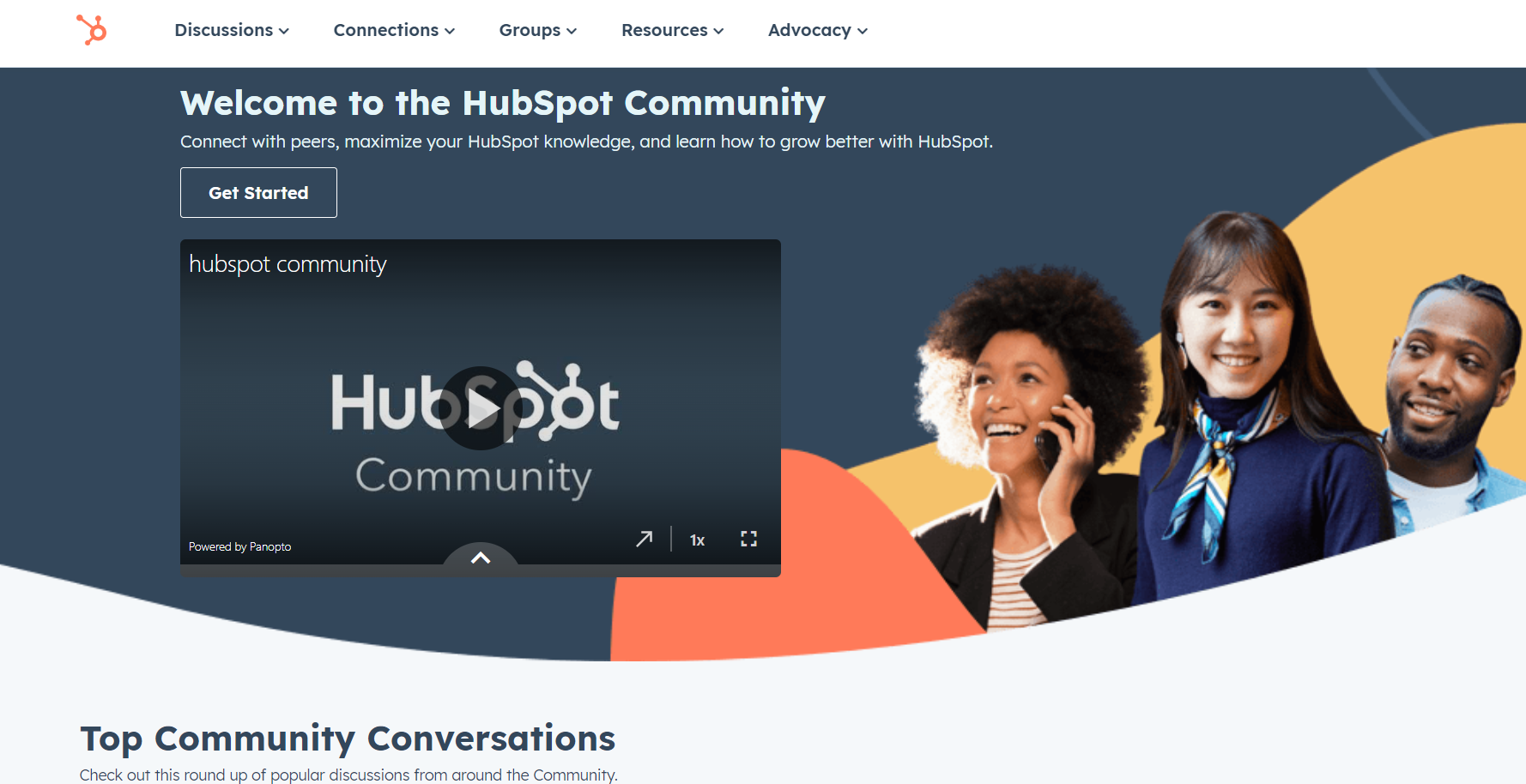
- Dedicated Support Team: HubSpot users benefit from a dedicated support team ready to assist with hiccups or queries. Whether it’s a technical glitch or a feature question, they’ve covered you.
- HubSpot Academy: HubSpot offers an academy filled with tutorials, courses, and certifications. It’s like having a continuous training program at your fingertips, making its framework go beyond immediate support.
- User Community: HubSpot’s user community is vibrant and active. From forums to user groups, there’s a wealth of knowledge and shared experiences to tap into. It’s a place where businesses help each other thrive.
Drupal
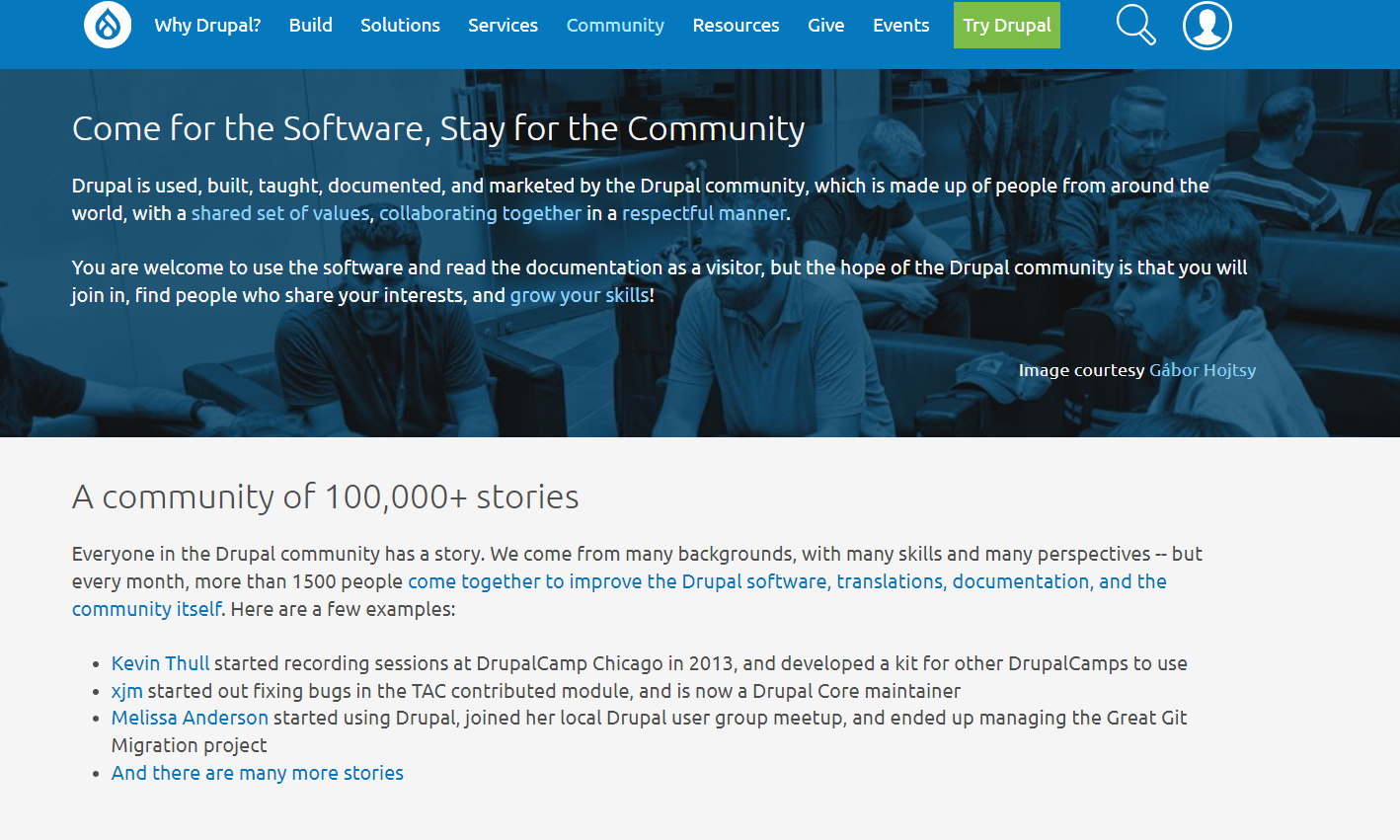
- Open-Source Community: Drupal’s strength lies in its vast open-source community. This means many developers and enthusiasts constantly contribute, update, and share solutions.
- Drupal Forums: The Drupal forums are a treasure trove of information. Whether you’re facing a unique challenge or need module recommendations, there’s likely a discussion thread to guide you.
- Expertise Varies: While the Drupal community is vast, the level of expertise varies. For complex issues, businesses may need to hire specialized Drupal experts or consultants for resolution.
HubSpot provides a robust support ecosystem, featuring a dedicated support team ready to assist users. Additionally, HubSpot boasts a learning academy that empowers users with educational resources, as well as an active user community that facilitates shared knowledge and collaboration. On the other hand, Drupal’s support structure is largely anchored in its expansive open-source community. The primary avenues for assistance in the Drupal realm come from forums and the vast array of modules contributed by community members.
5. HubSpot Vs Drupal: Comprehensive Pricing Modules Of Your Choice
HubSpot
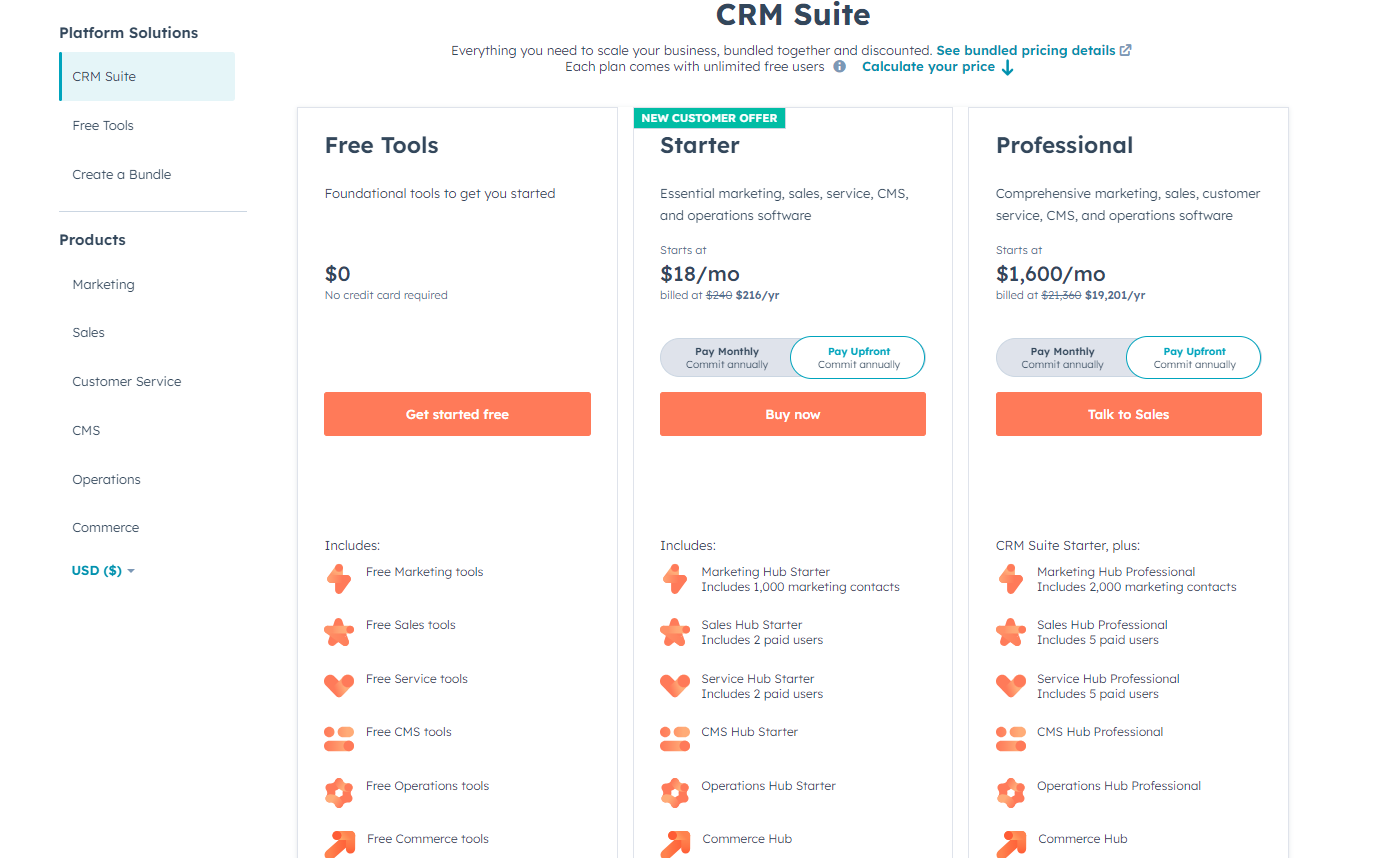
- Transparent Tiered Pricing: HubSpot operates on a tiered pricing model. Whether you’re a startup or an enterprise, there’s a plan tailored to your needs. This transparency allows businesses to predict costs and scale accordingly.
- All-Inclusive Packages: HubSpot’s pricing isn’t just about the CMS. It often includes other tools like marketing automation, CRM, and more. It’s a holistic package, ensuring you’re not nickel-and-dimed for every feature.
- No Hidden Hosting Costs: With HubSpot, hosting is part of the package—no need to budget separately for server costs or worry about scalability issues.
Drupal
- Free to Use… Initially: At its core, Drupal is open-source and free to use. However, this means it’s with costs. The actual expenses come from development, customization, and maintenance.
- Hosting and Maintenance: Unlike HubSpot, you’re in charge of your hosting with Drupal. This means additional costs and decisions regarding server types, scalability, and security.
- Extensions and Modules: While many Drupal modules are free, some premium modules have a price tag. Additionally, integrating third-party tools or platforms might incur additional costs.
HubSpot operates on a transparent tiered pricing model, incorporating a diverse range of tools within a single package, ensuring clarity and comprehensive utility for its users. Conversely, Drupal offers its core software for free, but users often find that the real expenses emerge from factors like development, hosting choices, and the integration of potential premium modules. The two platforms present distinct cost structures, each catering to different user priorities and financial strategies.
HubSpot Vs Drupal: What’s Your Final Choice?
Choosing between HubSpot and Drupal boils down to understanding your business’s specific needs, technical expertise, and desired level of customization. HubSpot offers a holistic approach with its suite of tools, making it an excellent choice for businesses looking for an integrated solution with minimal setup complexities. On the other hand, Drupal provides the flexibility that tech enthusiasts and larger enterprises might crave, albeit with a steeper learning curve.
In essence, your decision should align with your long-term digital strategy, the resources at your disposal, and the expertise within your team. Both platforms are powerful contenders in the CMS landscape, and the right choice will amplify your digital presence and drive tangible results.
Unlock Your Business Potential With Expert HubSpot Support!
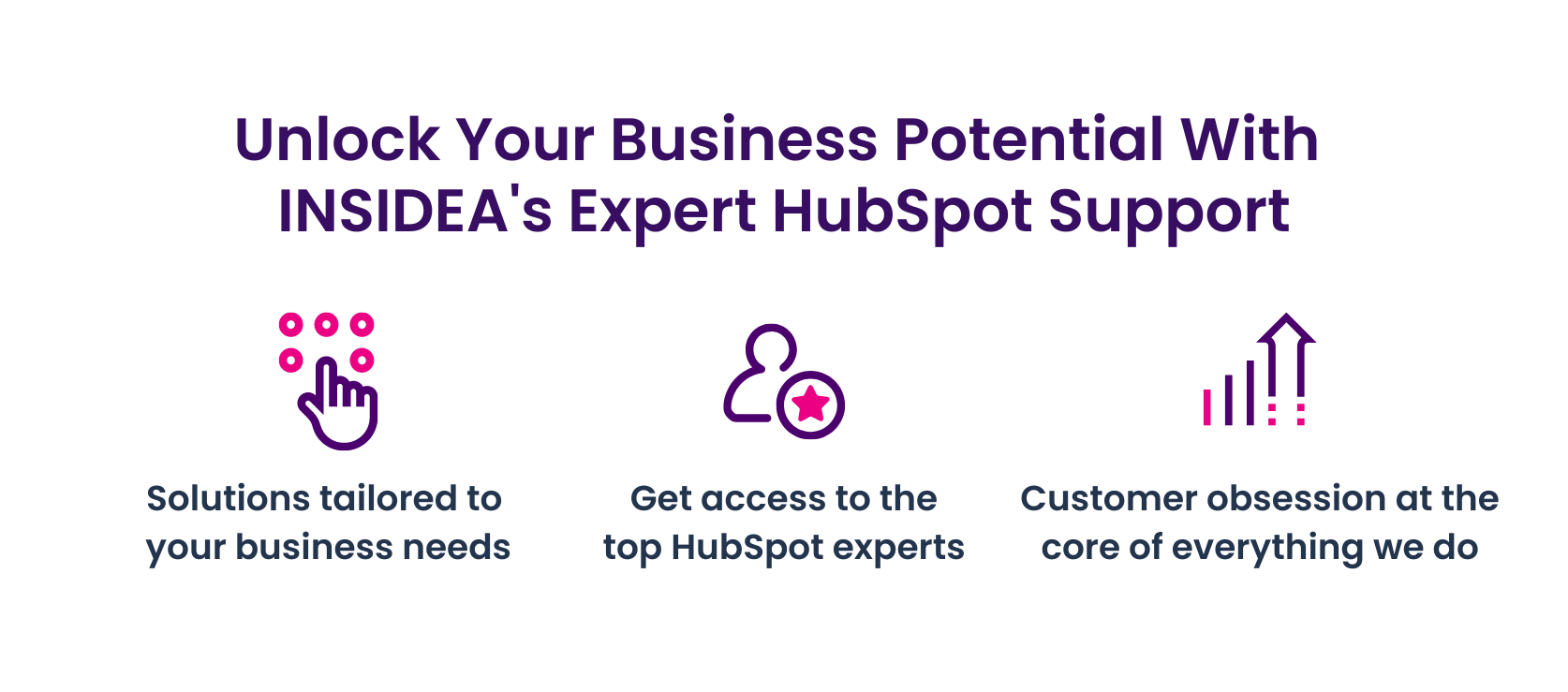
As a HubSpot Solutions Partner we take pride in assisting you with streamlining your HubSpot efforts. With the best-in-class marketing, sales, and service solutions, we help you scale exponentially. INSIDEA’s HubSpot Specialists have the required in-depth knowledge and can provide you expert guidance on how to use the platform to meet your specific business needs.
Get in touch today to learn more about how INSIDEA can help you succeed!
- Tailored Experience: For us, user experience is the Primary Focus. Thus, INSIDEA works with you to ensure your HubSpot experience is tailored to your business needs.
- Industry Expertise: Our team specializes in the setup, implementation, and optimization of HubSpot tools, as well as is well-versed in HubSpot best practices to ensure your business has the highest ROI possible.
- Customer Obsession: For us, customer satisfaction is the key to success, and we strive to ensure that our customers’ needs are not only met but exceeded every time.
At INSIDEA, we understand the importance of valuable HubSpot Strategies that understand your target audience and drive conversions. Explore how we can help you with your upcoming projects. Book a meeting with our HubSpot experts


